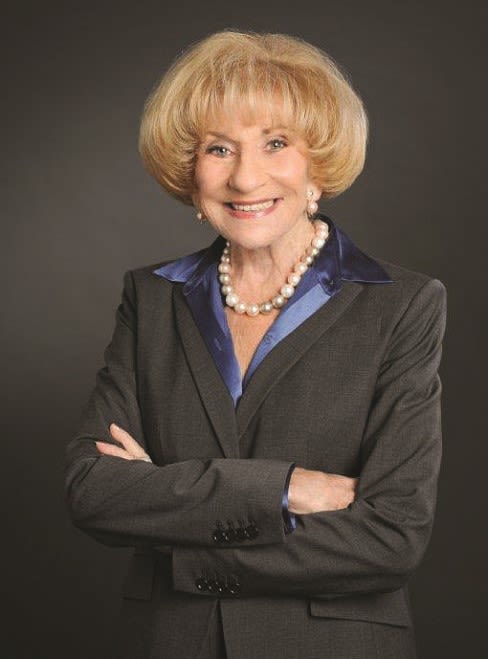What I've Learned: Flori Roberts
by Kim Hackett
HER NAME IS NOT AS FAMILIAR AS ESTEE LAUDER or Elizabeth Arden, but cosmetics maven Flori Roberts’ impact on the beauty business has been revolutionary. She pioneered the first cosmetic line for women of color in the 1960s. Then, with her late husband, Dr. Craig Roberts, she invented Dermablend, a make-up line designed to conceal skin flaws. Roberts, who lives in Sarasota, eventually sold both the Flori Roberts and Dermablend companies, and then went on to co-create Smart Cover Cosmetics, becoming one of the first concealer lines to use infomercials on the Home Shopping Network. Roberts is a founding member of the Committee of 200, an organization of the world’s most successful entrepreneurs and corporate innovators. She mentors budding business owners and has run entrepreneur boot camps through organizations such as the Women’s Resource Center of Sarasota County.

“I came to business through an unusual route. I had a B.A. in fine arts from Carnegie Mellon and wanted to be an actress. I made it to Broadway to replace Carol Channing in a revue called Lend an Ear. After touring, I returned to New York and found that you often had to wait tables to make a living. Not for me. Advertising was a lot like theater, and I found a niche in the fashion industry.”
“Always be looking for new markets.”
“Stay away from the giants. Find a niche they are not serving; that is how I went into black cosmetics. At fashion shows I was managing, I overheard black models complain that they had to mix multiple colors of make-up to match their skin tone. No one was making quality cosmetics for women of color.”
“You must not get destroyed if you are passed over or someone’s nasty to you. When I first showed my black cosmetics line to a manager at a huge department store, he made fun of my packaging and he threw it on the floor. I contained myself. Later, after another store had success with our line, he asked if I would come back. I said, ‘Of course.’ You cannot harbor grudges.”
“Learn from the success and failures of others. I watched Estee Lauder like a hawk. She saw the need for a hypoallergenic line and started Clinique. You have to always be looking for new markets.”
“I didn’t want to sell Flori Roberts Inc. But it was the right time and it wasn’t just my decision. It was a family business and it was a family decision to sell. My husband was older than me and he wanted some time off. I stayed at the company as a consultant, but I could never use my name again. I couldn’t even go into any competitive company for five years.”
“I discourage some people who think they have that great big idea for a business. Not everyone is suited to being in their own business; it requires infrastructure, and in the beginning you have to work alone. Some people can’t do this; they belong in a corporate structure.”
“You are always going to feel guilty if you have a business and have kids.”
“Pay for the best professional advice. Don’t shortchange your idea. You need the best, especially when it comes to trademarking.”
“You are always going to feel guilty if you have a business and have kids. There is always something you can’t do.”
“Be an authority in your field. I couldn’t afford big advertising but I’m a marketer to my soul. I decided that I’m just going to be an authority on black cosmetics and then corrective cosmetics, so if the media or anyone wants to know about something, they call me.”
“Once you have something good, you are going to have company. It’s in the American culture. You have to know what you stand for and what edge you have. You either need to plan or be destroyed.”
“We need to promote entrepreneurship in this region to keep young people here. We need a strong organization to foster entrepreneurship. It can make the region competitive and is a way of differentiating the community.” ■